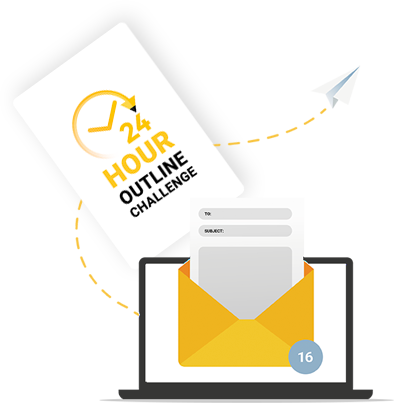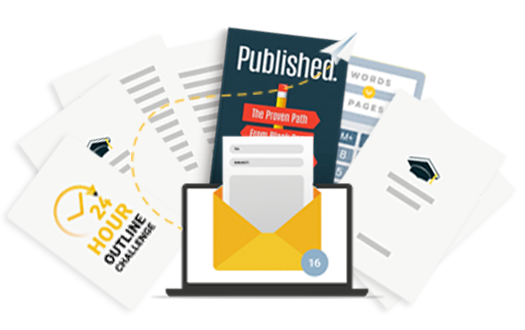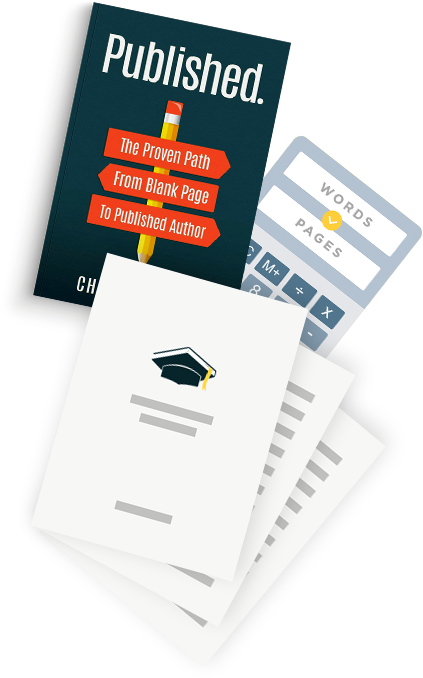Successfully writing, publishing, marketing, and selling your book is a serious entrepreneurial business.
Think about it: you are taking, in essence, your thoughts (the raw material, let’s say), forming them into concrete sentences and paragraphs to make up chapters of a book (the work-in-progress), followed by selecting a stand-out title and amazing cover art – with the ultimate aim of marketing and successfully selling your “finished product.”
But when is the best time to publish your work?
Figuring out just when to launch your book is equally important, perhaps one of the most strategic aspects of the book publishing process.
This article explores some of the changing factors in the publishing world, various things to keep in mind regarding the “new way” to launch books, and, lastly, some helpful tips on when and how to release your book for maximum impact.
This guide to the best time to publish your book covers:
- Self-publishing – things to keep in mind
- Who is your intended audience?
- Genre and tie-in guidelines
- How to combine the best of both worlds
Self-Publishing – things to keep in mind
Traditional Publishing vs. Self-Publishing
While with traditional publishing you might have access to a team of professional marketers with industry experience, in taking the self-publishing route you are, in effect, assuming chief executive responsibilities.
Traditional publishing follows the brick-and-mortar commercialized model: consider a fun summer read, say, a warm-hearted novel by an established author with a few bestsellers under her name. Following the traditional book publishing calendar, the release date for such a book will likely fall during the summer months, not the fall or winter where other book genres generally do better (see below for a month-to-month breakdown on when certain genres are normally released).
The self-publishing route follows a different, though somewhat similar, marketing approach regarding launch dates.
With self-publishing, given the amazing potential for building an organic audience through social media, blogging, podcasting, etc. book launches follow a more case-by-case model.
The first-time author, for instance, with millions of YouTube fans – say PewdiePie, whose 2015 book became an instant New York Times Bestseller – can release his or her book practically at any time because the demand for such work will likely already be very high. One announcement is really all it takes – especially for someone who has an especially loyal following.
Granted, not everyone publishing a first-time book will have stardom at that scale. This is why aspiring writers need to be already creatively building their name, reputation, expertise, brand, etc. on the various social media platforms. This will look different for everyone, of course. For successful digital publication, branding, and sales, the key is to have a pre-existing list of followers, subscribers, etc.
What are some of your writer goals – what end objectives do you have in mind upon your books release? Clarifying what some of these goals are will better help you with selecting a timely release date. For instance, you might want to consider some of the following:
Are you looking to publish purely out of passion? Is this book simply flowing out of you that you simply just need to get it out to, say, your loyal blog following, friends and family, etc? In such a case, a specific release date may not be too pressing.
Perhaps you have reached a critical point in your life – retired after years serving as a teacher, police officer, lawyer, etc. Personal memoirs – even fictional works – can work here. Say you went through a grueling but memorable life-changing event. Say, against all odds, you graduated from medical school and want to share your story.
Example: Scott Turow
Look at Scott Turow, whose book One L, an autobiographical work on what it took to graduate from Harvard Law School, earned him much recognition. This was his first book, published in 1977 (a lot of reprints since then; more on “evergreen” books later). He has since become a very successful author, having sold more than 30 million copies, including several movie adaptations.
Few more things to note about his success:
Turow began writing his work while still in school, perhaps as journal entries. This enabled him to record the events in stark detail.
He strategically released after graduation. Imagine that: he’s being educated at one of the finest schools in the country while documenting the kind of journey that, until then, was probably not common knowledge.
Ask yourself: What special experiences do I have that are not common to most that can form the basis for a powerful/interesting reading? Wherever in life, you may be, BEGIN DOCUMENTING NOW!
After he landed success with his first book, he later would establish a career in a different genre – legal thrillers.
Is big commercial success what you are after? Who doesn’t want their book to be top-rated, reviewed extensively, perhaps even quoted and remembered for ages to come? You are in it to win it, right?! While there are no guarantees, strategically releasing your book can definitely help with getting it out at the “right” time – hence, leading to more exposure and the “right” person picking it up. More on how sometimes this happens unexpectedly below.
What about an audiobook edition? People are on the go today. Sometimes hearing a book is more effective and more commercially viable for both the writer and listener. In fact, audio content is getting more popular as podcasts and, yes, audiobooks take off.
This might be an excellent opportunity for you to be creative. Typically, print books come out first, whatever the release date. For a more personal and creative impact, audiobooks then follow. Depending on your foundational pillar in the digital social media space, an audiobook might be more advantageous for your brand.
Here are some things to consider:
What if your voice is simply stellar, soothing to the core?
Perhaps your book just sounds better to read aloud, not read quietly?
Maybe you’ve already “read” a book length’s work to your audience through your mastery of a subject you display through your twice-a-week podcast show.
If so, offer some free previews to your loyal fan base. This builds momentum and spreads the word. You’ll know when to release it.
NOTE: certain genres may sound better through audio. Think outside of the box and dare to do what nobody has done: a kids adventure book, a deep confessional, an unsolved mystery, etc.
Who is your intended audience?
Might you simply be writing an industry-specific book intended to be read by colleagues? In this case, you might be more concerned with developing greater authority in your specific field and likely not looking for broad commercial success. A release date would likely be ASAP.
Is your book the first in a series, a sequel, perhaps the fourth book in your line? If the first, you should definitely pay attention to the genre and book calendar, especially if you are looking to make an impact and leave readers wanting a follow-up. If established already, then, your loyal fan base may not be too concerned with a release date.
EMBRACE – Don’t Shun – CHANGE.
Life moves fast. As it is with life, so it is with business and self-publishing entrepreneurial success. For better or for worse, sometimes there are factors out of your control.
Example scenarios
You “time” the market perfectly and announce the publication of your book just when the world seems crazed to read about that subject you endlessly studied and passionately wrote on for years.
Your book does well at first but years later it simply flops out of lack of interest, perhaps due to new information on the subject that challenges an original theory, etc. Books on certain historical time periods covering, say, a major war, come to mind.
For instance, new books on the Civil War – or some critical aspect of it – seem to come out yearly. This is both good and bad. While there is room to compete, it could also be that no matter how well an aspiring writer times their books’ release, the market may well be too flooded or dominated by key authority figures.
NOTE: Many subjects/genres simply are not evergreen enough. In fact, no book is. Even beloved classics that have sold millions get special and/or commemorative editions. Sometimes the publishers include a new cover page, interesting artwork, a foreword by a famous scholar, etc.
This is why a lot of books undergo updates and revisions, lead to book sequels, why writers delve into various subjects/themes, etc – fresh content, like a new movie with a twist, keeps people loyal and engaged.
Maybe somebody in the mainstream media mentions a particular literary figure once formerly obscure to most of the general public but now, upon the mentioning of that person, interest rises like crazy. Google searches, Amazon book searches spike overnight. Let’s say you wrote a biography of that literary figure years ago at a time when no demand existed, highlighting some unique aspect of their life.
Chances are, your book will be found and interest for it – probably little to none prior to this time – suddenly explodes. That means more for sales for you, higher visibility, and status as a writer.
Example – Daniel Golden
Daniel Golden’s book The Price of Admission, recently got much national attention when his book – an expose on corrupt university admissions – was widely cited when the national conversation centered on the recent college admissions cheating scandal. I cannot presume to know his – or his publishers’ – strategic plan regarding the books release except to say that 13 years (it was released in 2006) after its publication it got some serious attention (and sales).
For the last example, I’ll get personal. A friend and I are currently co-authoring a book on the failing state of education in a New England city where we live. Right now, aside from maybe concerned parents, educational reformers, and urban political news junkies, there may not be much demand among the general public for such a book. For that reason, there is really no precise “release date.”
But here’s the catch: my friend has many years under his belt as a principal and is actually in the process of opening up his own school. Say his school takes off and becomes the focus of local and statewide attention, perhaps even national.
At this point, our book would likely be mentioned. As we do interviews, get featured on radio, podcasts, it gets all-the-more popular.
Before we know it, we are working on a second book, perhaps a documentary (heck, it could be featured on Youtube).
My personal blog suddenly experiences a surge (meaning more subscribers/potential readers).
We become more recognized as experts in the field, consulting later down the road, etc….
Scenarios like these are virtually endless, involving any number of variables. Again, there is no exact formula for a book release date. Eventual commercial success can come in a variety of ways, in the most unexpected times, and from the most unexpected of places.
The takeaway is simply to stay motivated. Simply write. You just don’t know when it will take off. At best, you boost your resume; at worst, perhaps, interested readers find your book years from now. Still seems like a safe wager to me.
Genre and tie-in guidelines
Retail stores have their displays boiled down to a science. In the traditional book stores, the same applies. Walk into any bookstore and you will see that it is carefully arranged by genre – and, depending on the time of year, you will notice certain genres more heavily promoted than during other times.
Alan Rinzler, a traditional publishing expert, in his highly informative and widely cited article, “Timing Your Book’s Launch for Maximum Impact,” provides this helpful month-by-month breakdown on the best times to publish by genre:
Tie-ins by the month.
January
Post-holiday: Prime time for diet books, celebrity exercise books, and how-to books, including self-education, home repair, adventure travel planning, languages, and self-help books about finding a new relationship, renewing a marriage, or becoming a more effective parent.
Martin Luther King Jr. Day: For inspirational books about African American history, civil rights, peace, and freedom.
February
Valentine’s Day: For loving gifts of books with hidden agendas, including collections of lyric poetry, romance novels, dreamy photos of romantic foreign cities like Paris or Prague.
End of the month: Books related to Major League Baseball’s spring training, with celebratory biographies, compilations of new statistical records, glossy picture books, and metaphorically inclined literary novels, all in place for the sport’s big opening day in April.
March
International Women’s Day: Books on the latest topical or historic issues around women’s health, reproductive rights, freedom from oppression and exploitation in hostile cultures, personal memoir, biography, quality fiction.
Easter: Books about Christ, biblical exegesis, inspirational, archeological, and illustrated children’s books about the resurrection and other relevant topics.
April
Holocaust Remembrance Day: Books about Jewish calamities and heroism during World War II, personal memoirs, new research about partisans and German rescuers. There are always many new titles for this large book-buying demographic.
May
Cinque de Mayo: Books targeting the rapid growing market for Hispanic-American fiction and nonfiction, history, politics, culture.
Mother’s Day: An occasion perfect for celebrative fiction, memoir, and appreciation to go with that bouquet of roses.
June
Graduations: Gift books for high school and college students. And in these economic hard times, a new category for graduating college students has emerged like Finding a Job When There are No Jobs, Guerilla Marketing for Job Hunters and many others you’ll see on the front tables during June.
July and August
Summer reading: These are the weeks devoted to summer book sales, the season for category fiction like paperback mysteries, romances and science fiction.
September
The anniversary of September 11th: The events of that day have inspired books in many genres, including politics, history, memoir, biography, education and children’s books.
Off to college: Books for for college freshmen learning the ropes about class and time management, roommates, and coping with issues like sex and drugs, loneliness and insecurity. Also advice books for parents seeking guidance for their 18-year-old’s first time away from home.
Back to school: Children’s books, also parenting, education, technical, professional, literature and fiction.
October
Halloween: Horror movie tie-in books and new titles in costume, art, graphic novel and other fiction.
November
Thanksgiving: Books for children, cookbooks, history and spirituality are popular markets for this holiday
December
Holiday books for Christmas, Chanukah, the traditional African American Kwanzaa feast, and other special year-end observances.
In his article, Rinzler points out various critical strategic tie-in strategies that would-be and established writers should be aware of. These include:
Various “Seasons,” literal, cultural, and otherwise: the obvious include Christmas-themed books during the holiday months; self-help books (weight loss, business, etc) during January as part of New Year’s Resolutions.
Speaking of which, a book’s title along with the release date can be strategically paired.
Seasonal example
Not to sound cheesy but consider promoting a book mid-way through the year and releasing it by the year’s end titled, “365 Days to a Healthier You: Dieting, Relaxation…Tips, etc…”
Say you already have a handle on this niche, have great YouTube content, and so forth. This may or may not work. Perhaps it has already been done.
Point Being: Know the particulars of your industry and what thought leaders – historical and current – have done.
Annual Events And Anniversaries: Rinzler mentions as an example a recent book being featured in the New York Times titled 360 Sound: The Columbia Records Story. It is being released during the company’s 125th anniversary.
Many examples abound here: D Day, World War II, Black History Month. If you look hard and long enough in a bookstore you’ll see countless examples spanning many different genres of books being released during key times throughout the year.
Combining these annual events/anniversaries with an in-person event celebrating/remembering, say, the 50th anniversary of fill-in-the-blank subject and you can score big!
The more creative you can be with a tie-in the better. If you need help developing a tie-in for your book, definitely check out Rinzler’s article where he provides some very helpful steps.
How to combine the best of both worlds
Just because you may be self-publishing your book does not mean that you cannot take full advantage of “traditional” book publishing methods. In the world of traditional print, when a book release is announced, various “follow up” events happen to further promote the book.
While established authors with huge fan bases can land corporate gigs and do book signings – even go on tours, etc – beginning writers can make use of many different venues to better launch and promote their book.
For instance, your local library may have events where they feature local writers. Look these up.
”Pitch” an idea to a local library, university department, newspaper, museum, cultural organization, non-profit dedicated to the cause your book touches on, etc. – institutions that generate people with interest in the subject (s) you are seeking publication.
Example: Maybe around St. Patricks Day as your local paper focuses on the various festivities, you write a column about Irish history and in the bio section announce when your book on the subject will be released and how it can be purchased.
Look into the various Irish organizations in your area that are hosting events and ask for a speaking engagement to really double down. At this point, your book is published and, by raffle, you give out a free copy or two, etc.
The Pros at Self-Publishing School have been strategically launching books for many years now. No matter where you are in your writing journey, they are here to offer top-notch consulting services on every aspect of the writing, marketing, and book promotion process. Get in touch with them now.



